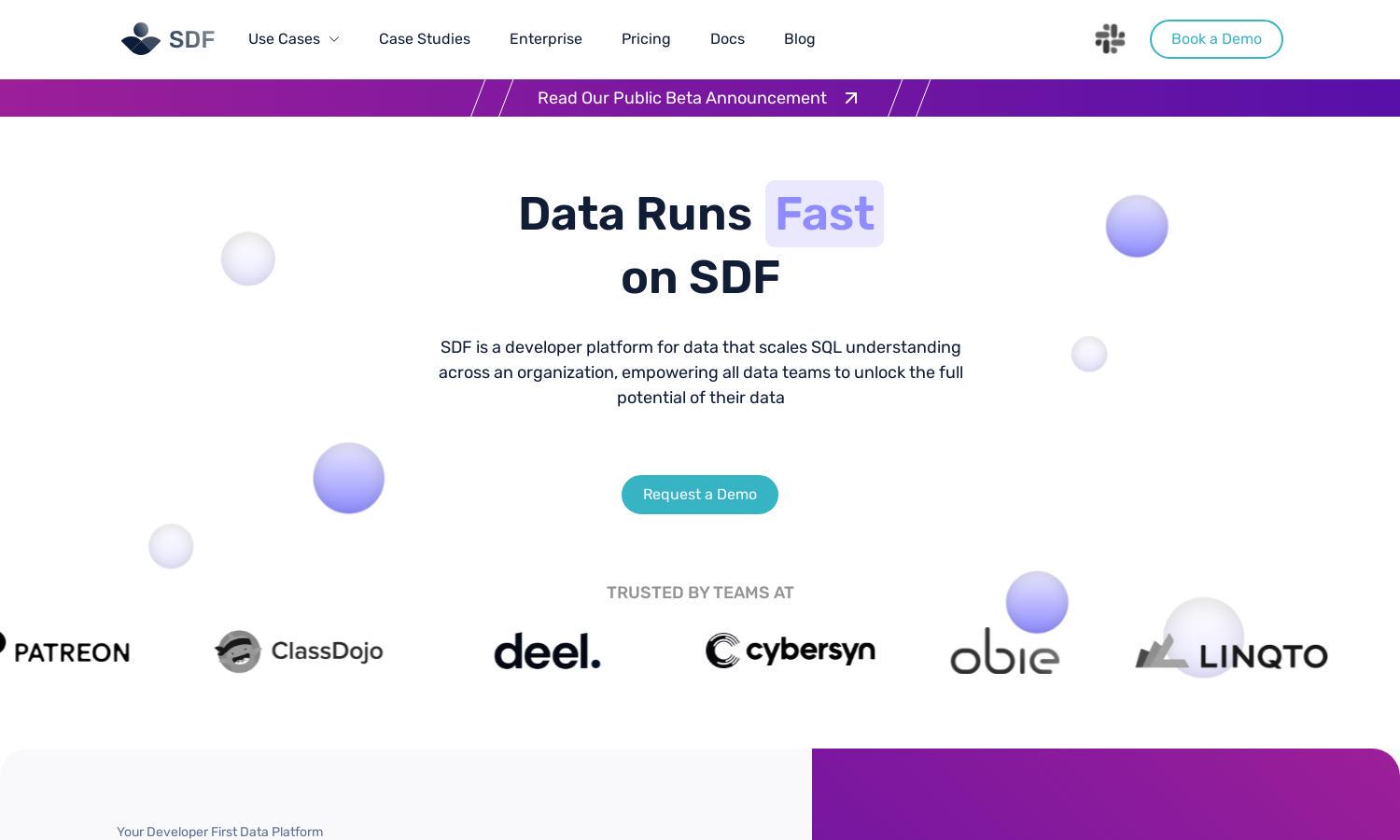SDF Labs

About SDF Labs
SDF Labs is an innovative platform designed for developers, transforming data engineering by integrating SQL understanding across organizations. With its unique compiler and execution engine, SDF enables users to minimize errors, streamline workflows, and enhance productivity in data management and transformation processes.
SDF Labs offers a free command-line interface (CLI), with pricing plans for support and additional cloud features. Users can access different tiers based on their needs, enhancing capabilities such as data governance and quality checks, making it easier to scale their data operations.
SDF Labs features a user-friendly interface that enhances navigation and access to tools. Its streamlined layout and intuitive controls make data transformation straightforward, helping users efficiently manage data processes while enjoying a seamless browsing experience.
How SDF Labs works
Users start with SDF Labs by installing the lightweight Rust binary to run the SDF Engine locally. After setup, they can navigate the CLI to utilize features like static analysis, SQL compilation, and data modeling. The process empowers users by automating tasks, ensuring data quality, and providing a comprehensive view of their warehouse.
Key Features for SDF Labs
Static Analysis for SQL
SDF Labs' static analysis feature identifies broken SQL and dependency errors before they reach production. This innovative functionality enhances user confidence and reliability, ensuring smoother development cycles and greatly reducing the risks associated with data transformations.
User Defined Types
The User Defined Types feature in SDF Labs allows data engineers to incorporate customized types into their SQL. This capability enhances data validity and prevents type errors, leading to more robust models and a smoother transformation process, ultimately improving overall data management.
Integrated Data Governance
SDF Labs ensures compliance and data protection through integrated data governance features. Users can automate quality checks and utilize precise column-level lineage functionality, significantly enhancing data security and making it easier to maintain best practices in data management.








